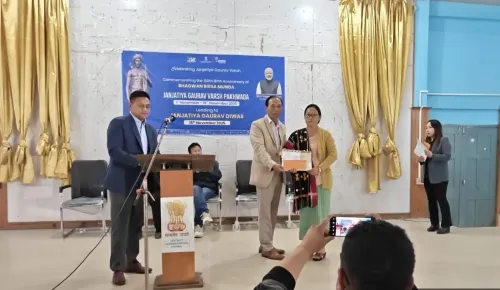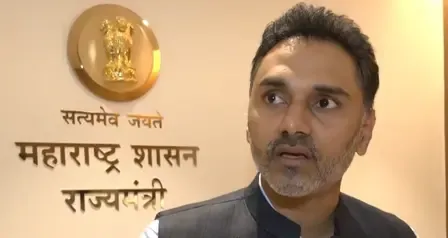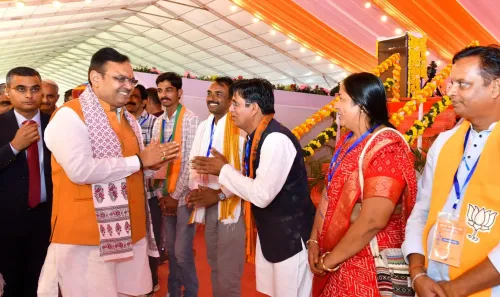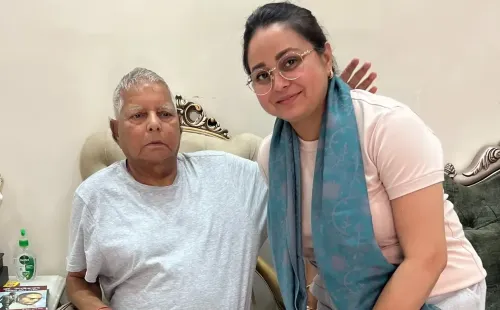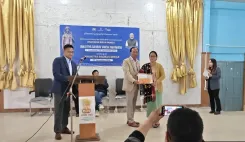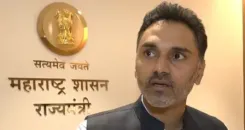Can Adhir Chowdhury Secure Citizenship Rights for Matuas?
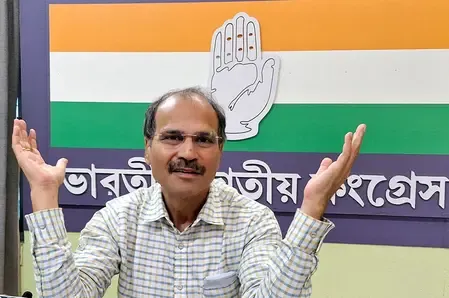
Synopsis
Key Takeaways
- Adhir Chowdhury advocates for the Matua community's citizenship rights.
- The Matuas, originally from Bangladesh, have settled in West Bengal.
- A hunger strike is ongoing to demand relief from documentation requirements.
- Chowdhury's intervention seeks to prevent loss of voting rights.
- The situation highlights broader issues of historical marginalization.
Kolkata, Nov 15 (NationPress) Former Lok Sabha MP and Congress leader Adhir Ranjan Chowdhury has taken a significant step by sending a letter to the Union Minister of Home Affairs, Amit Shah, requesting an ordinance aimed at safeguarding the citizenship rights of individuals belonging to the Matua community.
The Matuas, a marginalized group from the Hindu community, migrated to West Bengal as refugees from Bangladesh, primarily settling in districts like North 24 Parganas and Nadia.
In his correspondence, Chowdhury urged Shah to intervene and exempt the Matuas from the stringent documentation requirements imposed by the ongoing special intensive revision (SIR) by the Election Commission of India (ECI), advocating for their formal acknowledgment as citizens.
Currently, a faction of the Matuas, organized under the All India Matua Mahasangha, is participating in a hunger strike at Thakurnagar in the Bangaon subdivision, demanding relief from the documentation mandates for the revision process.
On Thursday, Chowdhury visited the hunger strike location, where he observed the community members’ distress, fear, and anxiety about their uncertain future as citizens.
He committed to fully supporting them in their quest for justice.
Chowdhury emphasized in his letter that after fleeing from East Pakistan (now Bangladesh) and enduring significant persecution, hardship, and displacement, the Matua community has been integral to India's social and democratic landscape.
He pointed out that since the Union Government has chosen to extend the cutoff date for the Citizenship (Amendment) Act (CAA) for “victims of religious persecution” from December 31, 2014, to December 31, 2024, similar humanitarian considerations should apply to the long-established Matua community.
Chowdhury has called for the ordinance to be introduced before the upcoming Winter Session of Parliament to secure the citizenship status and voting rights of the Matuas in both Assembly and Parliamentary elections.
Moreover, he expressed concern that the Matuas, who have historically participated in elections and elected representatives to the West Bengal Assembly and Parliament, now face the unjust risk of losing their voting rights due to the inability to produce documents that are nearly 25 years old.
Chowdhury believes that requiring such documents from the Matuas is an unrealistic expectation for a community that has faced historical marginalization and displacement.

